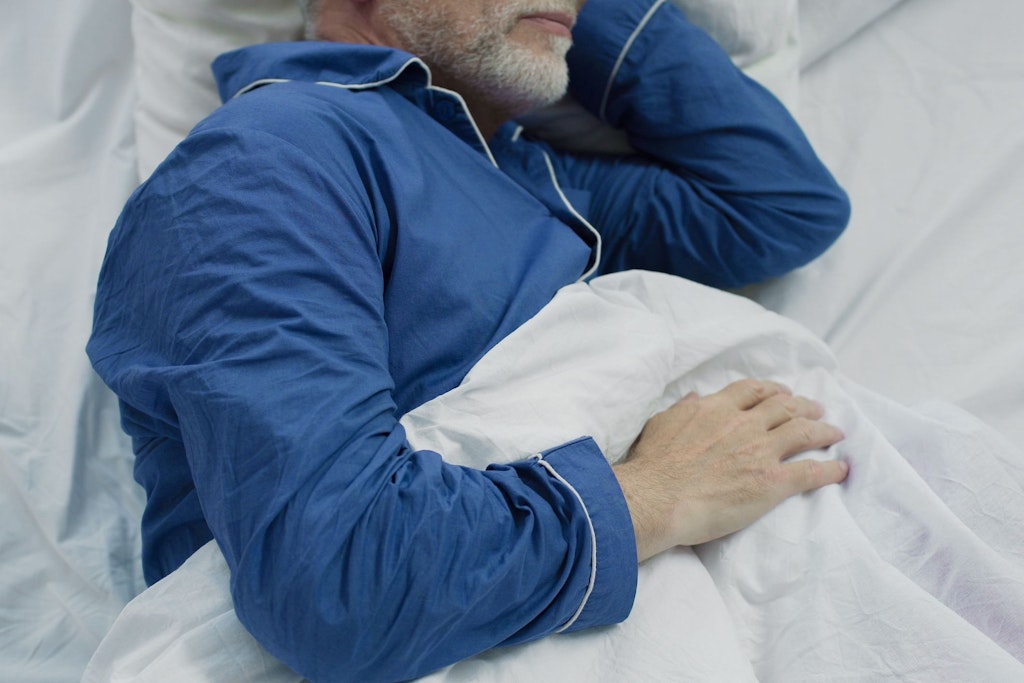Am I getting the right amount of sleep?
Last updated on 21 February 2024

Key points:
- Researchers suggest that over 30 percent of adults are not getting the right amount of sleep
- Some factors of broken or insufficient sleep time can be linked to pain or certain medications
- Maintaining sleep hygiene is a good way to improve sleep consistency
Over 30 percent of adults are not getting the right amount of sleep, according to a recent study from the Adelaide Institute for Sleep Health and Flinders University.
Results show that only 15 percent of study participants successfully slept for the recommended seven to nine hours for five or more nights per week.
Dr Hannah Scott, a researcher at Flinders University, understands the importance of this research to help Australians understand the risks associated with irregular sleep.
“This [research] is crucial because regularly not sleeping enough, or possibly too much, are associated with ill effects and we are only just realising the consequences of irregular sleep,” said Flinders University researcher Dr Hannah Scott.
While older adults need the same amount of sleep as younger adults, the recommended seven to nine hours may be harder to attain for numerous reasons. Evidence suggests that people who have retired are more likely to sleep longer and have fewer sleep difficulties than people who are currently employed. This is also supported by results from another study where longer sleep duration, later bedtimes, and later wake times were seen in people who were transitioning to retirement.
Researchers have provided reasoning for this. It has been suggested that the ‘removal of worry and hyper-arousal related to work stress’ could be why people in retirement are sleeping more.
However, as one ages further, some older adults often go to sleep earlier and they often wake earlier than their younger counterparts. Some factors of broken or insufficient sleep time can be linked to pain or certain medications.
It’s about fitting your sleep within the recommendations for your age: researchers in another study discovered that people over the age of 60 who sleep less may increase their risk of dementia by 27 percent.
Increased risk of mortality and health conditions such as obesity and cardiovascular disease have been seen in people who sleep fewer than six hours a night on average. On average, a person who sleeps more than nine hours a night is at a greater risk of mortality and ‘a similar array of health conditions, including hypertension, stroke and diabetes.’
After analysing the results of the recent study, Dr Scott and his team identified a reason why people may not be getting enough sleep.
“Clearly, getting the recommended sleep duration range frequently is a challenge for many people to achieve, especially during the working week,” Dr Scott continued.
In this study, Dr Scott worked alongside researchers such as Professor Danny Eckert who is the Director of Sleep Health at Flinders University. Professor Danny Eckert is also a leadership fellow for the Australian National Health and Medical Research Council. Professor Eckert elaborated on how this research could impact the health care system for Australians.
“Based on these findings, public health and advocacy efforts need to support the community and individuals to achieve more regular sleep within the recommended range for their age,” said Professor Eckert.
“Given what we know about the importance of sleep to health, we also need to assist people to resolve chronic sleep difficulties and encourage all people to make sleep a priority,” continued Professor Eckert.
The sleep researchers at Flinders Health and Medical Research Institute also provided suggestions on how to get the right amount of sleep.
Australians with unavoidable commitments, which could include caring for a loved one, should catch up on missing sleep, as well as try to wake up and go to bed at consistent times. However, if you are concerned about any aspect of your sleep or sleeping patterns, the researchers state that you should consult a doctor.
Some other things to consider when setting up your nightly routine for good sleep are:
- avoiding cigarettes as they act as a stimulant and may keep you awake;
- only using the bedroom for sleep and intimacy: watching TV in bed can confuse your body into staying awake;
- not eating heavy meals before bedtime;
- using earplugs if you live in a noisy area.
You can learn more about the importance of sleep hygiene and different sleeping disorders in our article: Sleep disorders and the NDIS: What you need to know.
A new TV series called Australia’s Sleep Revolution with Dr Michael Mosley is set to premiere on SBS OnDemand on March 6, 2024, to uncover the issues of sleep for Australians. Key insights for better sleep practices were given by the experts at the Flinders Health and Medical Research Institute and Adelaide Institute for Sleep Health.
What helps you sleep well at night?
Let the team at Your Retirement Living know on social media.
To get more information about how to stay healthy in retirement, subscribe to our free newsletter.
Relevant content:
Sleep disorders and the NDIS: What you need to know
Sleeping less can increase the risk of dementia by 27 percent